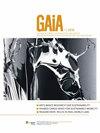COVID-19危机期间的短期行为变化是否会演变为低碳实践?
IF 1.9
4区 社会学
Q4 ENVIRONMENTAL SCIENCES
引用次数: 1
摘要
在新冠肺炎大流行期间,许多人改变了日常生活的常规,通常是非自愿的。其中一些变化意味着碳排放量的减少。这种行为的改变会导致持续的习惯延续到疫情之后吗?通过总结行为变化的条件,我们提出了可以支持持久采用低碳习惯的政策措施。在新冠肺炎危机的过程中,人们对特殊条件进行了一些行为适应,暂时减少了个人的碳足迹。问题是这些短期变化是否会演变成可持续的行为习惯,以及如何通过政策措施来支持这些变化。在三波疫情期间,德国和其他国家关于疫情导致的行为变化的调查、社会科学研究和研究有所增加。本文概述了心理学和社会学对行为变化的认识,并简要总结了迄今为止进行的实证研究的初步结果。重点将放在行为变化上,重点是流动性和日常工作,正如在德国所看到的那样。然而,来自德国的见解也可能为其他国家的类似进程提供线索。本文章由计算机程序翻译,如有差异,请以英文原文为准。
Will short-term behavior changes during the COVID-19 crisis evolve into low-carbon practices?
During the Covid-19 pandemic, many people have changed established routines in everyday life, often involuntarily. Some of these changes implied a lowering of carbon emissions. Will this behavior change lead to sustainable habits that extend beyond the pandemic? Recapitulating conditions
of behavior change, we suggest policy measures that could support a lasting adoption of low-carbon habits.In the course of the COVID-19 crisis, there were a number of behavioral adaptations to the extraordinary conditions that temporarily reduced individual carbon footprints. The question
is whether these short-term changes will evolve into sustainable behavioral habits and how to support these changes through policy measures. During the three waves of the pandemic, there has been an increase in surveys as well as in social science studies and research in Germany and other
countries on the topic of behavioral changes due to the pandemic. The paper recapitulates what is known about behavior change from psychology and sociology, and synoptically summarizes the preliminary findings from the empirical studies conducted so far. The emphasis will be on the behavioral
changes, with a focus on mobility and work routines, as witnessed in Germany. However, the insights from Germany may also shed a light on similar processes in other countries.
求助全文
通过发布文献求助,成功后即可免费获取论文全文。
去求助
来源期刊

Gaia-Ecological Perspectives for Science and Society
ENVIRONMENTAL SCIENCES-
CiteScore
2.30
自引率
18.80%
发文量
43
审稿时长
>12 weeks
期刊介绍:
GAIA is a peer-reviewed inter- and transdisciplinary journal for scientists and other interested parties concerned with the causes and analyses of environmental and sustainability problems and their solutions.
Environmental problems cannot be solved by one academic discipline. The complex natures of these problems require cooperation across disciplinary boundaries. Since 1991, GAIA has offered a well-balanced and practice-oriented forum for transdisciplinary research. GAIA offers first-hand information on state of the art environmental research and on current solutions to environmental problems. Well-known editors, advisors, and authors work to ensure the high quality of the contributions found in GAIA and a unique transdisciplinary dialogue – in a comprehensible style.
 求助内容:
求助内容: 应助结果提醒方式:
应助结果提醒方式:


